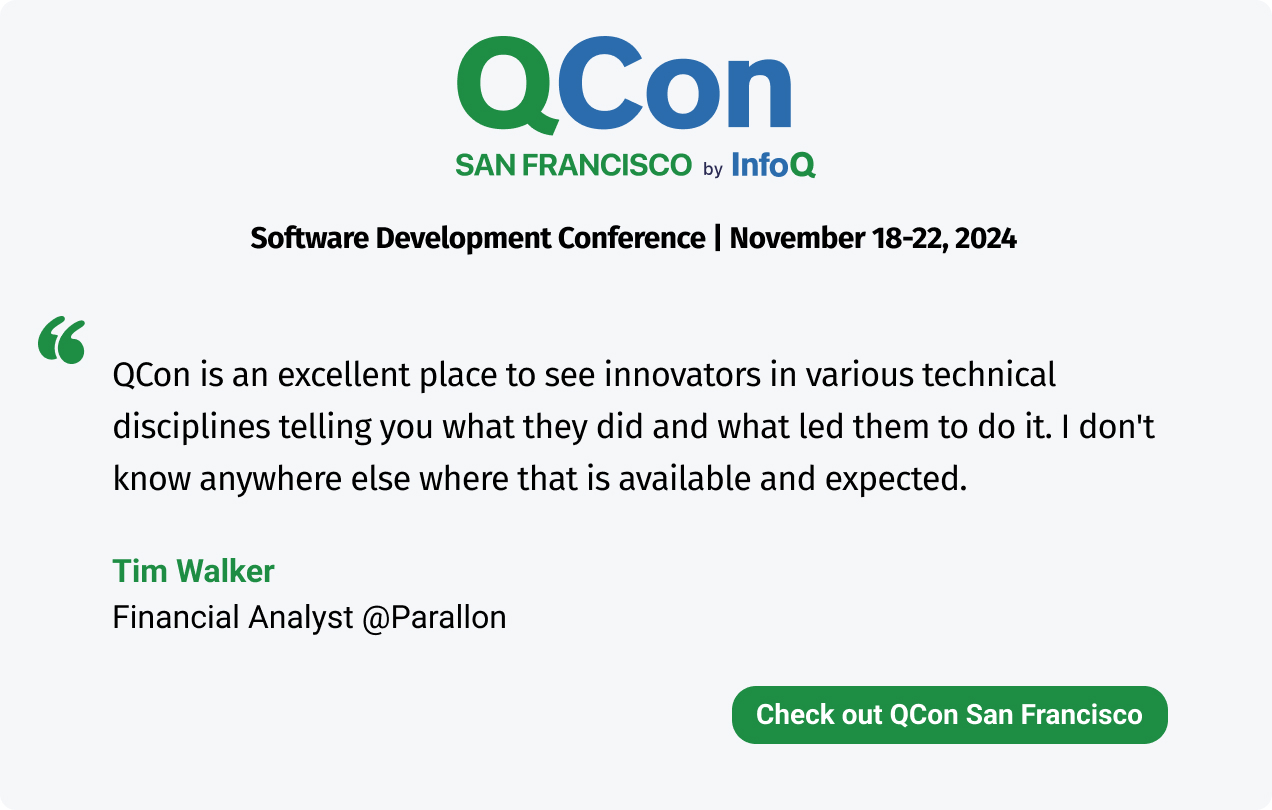InfoQ Homepage Presentations Continuous Improvement: Hell on Earth?
Continuous Improvement: Hell on Earth?
Summary
Katherine Kirk reflects through case study examples on what continuous improvement feels like on the ground and explores how it can be better by learning from other industries, research and real-life.
Bio
Now an independent consultant and researcher, Katherine Kirk has solid experience contracting and freelancing in a variety of roles within the IT and Media industries: from blue chip investment banking to media conglomerates. Recently she spent time as an Agile Coach at Rally after a period consulting as Delivery Improvement Specialist, Project Manager and Agile Coach at the BBC.
About the conference
Software is Changing the World. QCon empowers software development by facilitating the spread of knowledge and innovation in the developer community. A practitioner-driven conference, QCon is designed for technical team leads, architects, engineering directors, and project managers who influence innovation in their teams.

